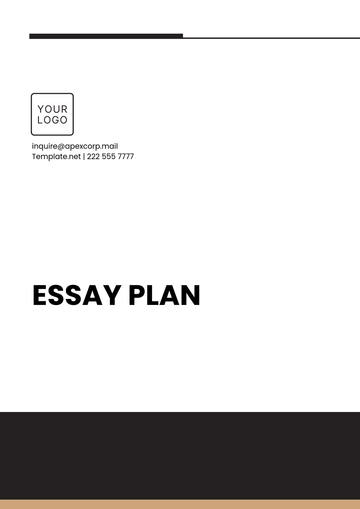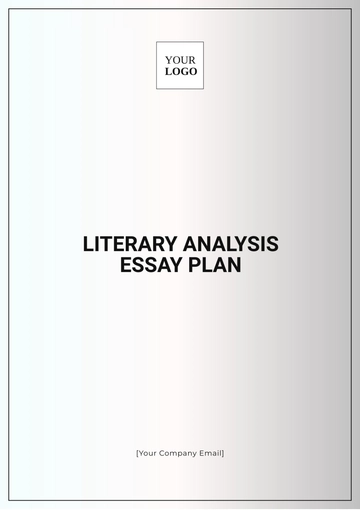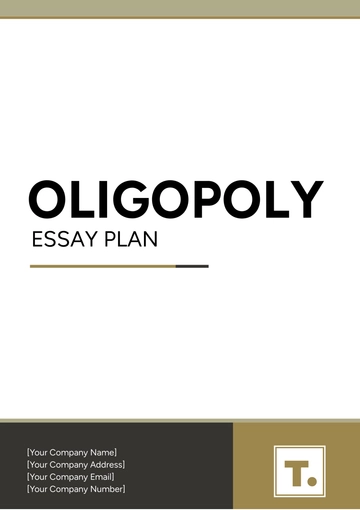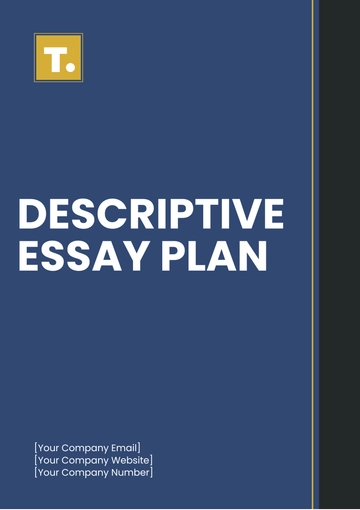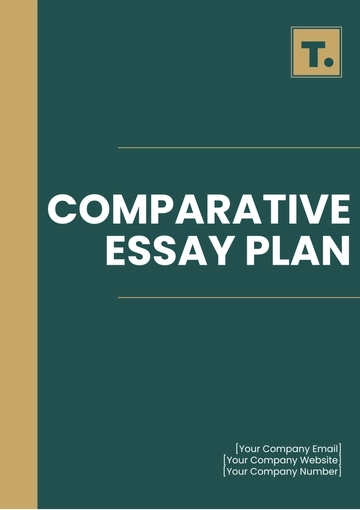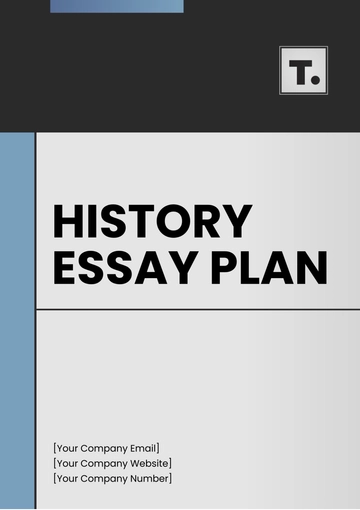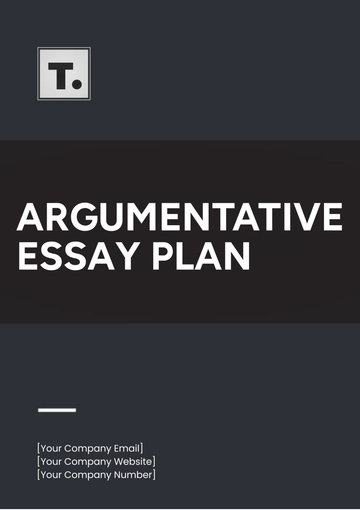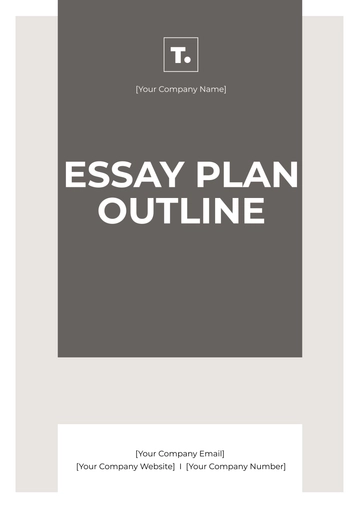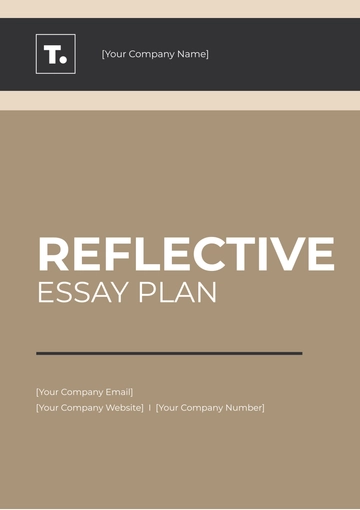Free Comparative Essay Plan
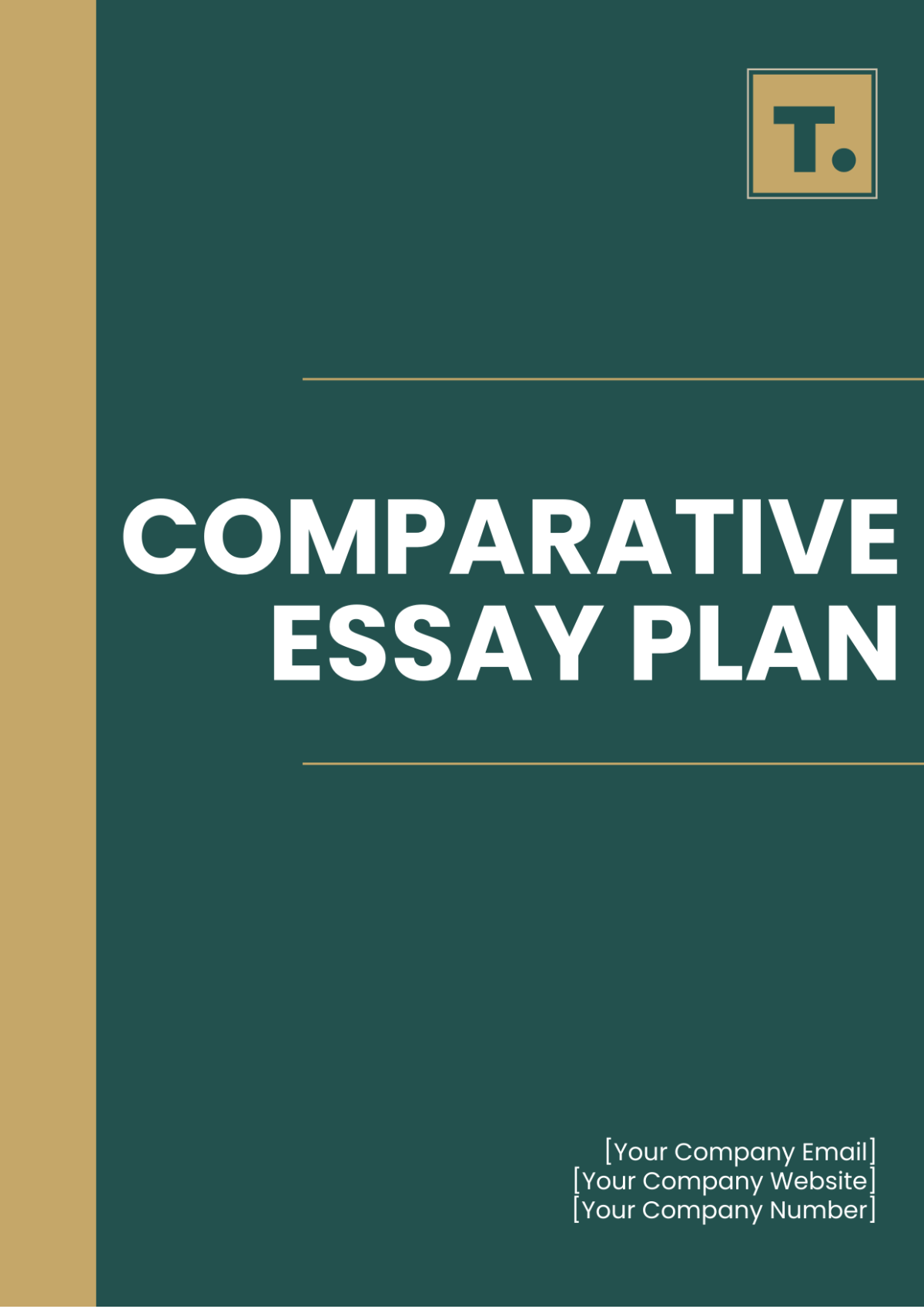
Written by: [YOUR NAME]
I. Introduction
Purpose: To compare and contrast renewable energy and fossil fuels, highlighting similarities and differences.
Thesis Statement: A thorough comparison of renewable energy and fossil fuels reveals significant insights into sustainability, economic impact, and environmental consequences.
Scope and Rationale
Define renewable energy and fossil fuels.
Outline the relevance and importance of comparing these energy sources.
A brief overview of expected outcomes from the comparison.
II. Overview of Topics
A. Background of Renewable Energy
Historical context and development: From early uses of wind and water power to modern innovations in solar, wind, and hydroelectric power.
Key features and main arguments:
Sustainable and inexhaustible sources.
Lower environmental impact.
Technological advancements and growing adoption.
B. Background of Fossil Fuels
Historical context and development: From the Industrial Revolution's reliance on coal to the dominance of oil and natural gas in the 20th century.
Key features and main arguments:
High energy density and reliability.
Established infrastructure and economic significance.
Significant environmental impact and finite availability.
III. Comparative Analysis
A. Similarities
Identify and discuss the major similarities:
Both are critical for the global energy supply.
Economic importance and job creation.
Analysis of how these similarities influence their respective domains or impacts:
The shared goal of meeting energy demand.
Both influence geopolitical dynamics and policy decisions.
B. Differences
Identify and discuss the major differences:
Resource availability (finite vs. renewable).
Environmental impact (pollution vs. clean energy).
Technological and infrastructural differences.
Analysis of how these differences shape the unique characteristics of each topic:
Renewable energy's role in mitigating climate change.
Fossil fuels' contribution to economic stability and development.
C. Impact Analysis
The effect of the similarities and differences on the broader field or area of study.
Table 1: Impact of Similarities and Differences
Aspect | Renewable Energy Impact | Fossil Fuels Impact |
|---|---|---|
Economic | Job creation in new sectors | Established industry jobs |
Social | Energy independence and security | Health issues from pollution |
IV. Thematic Comparison
A. Theme 1: Environmental Impact
Examination of how renewable energy and fossil fuels address environmental concerns.
Comparative discussion on the effectiveness or influence of each energy source on reducing pollution and carbon emissions.
B. Theme 2: Economic Viability
Analysis of the cost-effectiveness and economic sustainability of renewable energy versus fossil fuels.
Discussion on the long-term economic impacts and investments required for each energy source.
C. Additional Themes
Energy Security: Examining how reliance on different energy sources affects national and global security.
Technological Innovation: Comparison of the advancements driven by each sector and their implications for future energy solutions.
D. Summary Table of Themes
Theme | Renewable Energy | Fossil Fuels |
|---|---|---|
Environmental Impact | Low emissions, sustainable practices | High emissions, pollution |
Economic Viability | Growing investment, future savings | Established markets, immediate returns |
Energy Security | Diversification, domestic production | Geopolitical reliance, import risks |
Technological Innovation | Rapid advancements, new technologies | Mature technologies, slower innovation |
V. Evaluation and Conclusion
Evaluate which of the topics, renewable energy or fossil fuels, provides more substantial contributions to the field or area of interest.
Summarize how the comparison sheds light on broader issues or debates:
The urgency of transitioning to renewable energy for sustainability.
The economic and infrastructural challenges of moving away from fossil fuels.
Reflect on the implications of the findings and how they might inform future research or discussion:
Potential policy recommendations.
Areas for future technological research and development.
VI. References
Comprehensive list of sources that support the analysis of renewable energy and fossil fuels, including academic articles, industry reports, and expert opinions.
- 100% Customizable, free editor
- Access 1 Million+ Templates, photo’s & graphics
- Download or share as a template
- Click and replace photos, graphics, text, backgrounds
- Resize, crop, AI write & more
- Access advanced editor
Discover the ultimate tool for crafting stellar comparative essays with Template.net's Comparative Essay Plan Template. This meticulously designed resource offers an editable and customizable framework, ensuring your ideas flow seamlessly. Elevate your writing process effortlessly with features tailored to your needs, all editable in our AI Editor Tool
You may also like
- Finance Plan
- Construction Plan
- Sales Plan
- Development Plan
- Career Plan
- Budget Plan
- HR Plan
- Education Plan
- Transition Plan
- Work Plan
- Training Plan
- Communication Plan
- Operation Plan
- Health And Safety Plan
- Strategy Plan
- Professional Development Plan
- Advertising Plan
- Risk Management Plan
- Restaurant Plan
- School Plan
- Nursing Home Patient Care Plan
- Nursing Care Plan
- Plan Event
- Startup Plan
- Social Media Plan
- Staffing Plan
- Annual Plan
- Content Plan
- Payment Plan
- Implementation Plan
- Hotel Plan
- Workout Plan
- Accounting Plan
- Campaign Plan
- Essay Plan
- 30 60 90 Day Plan
- Research Plan
- Recruitment Plan
- 90 Day Plan
- Quarterly Plan
- Emergency Plan
- 5 Year Plan
- Gym Plan
- Personal Plan
- IT and Software Plan
- Treatment Plan
- Real Estate Plan
- Law Firm Plan
- Healthcare Plan
- Improvement Plan
- Media Plan
- 5 Year Business Plan
- Learning Plan
- Marketing Campaign Plan
- Travel Agency Plan
- Cleaning Services Plan
- Interior Design Plan
- Performance Plan
- PR Plan
- Birth Plan
- Life Plan
- SEO Plan
- Disaster Recovery Plan
- Continuity Plan
- Launch Plan
- Legal Plan
- Behavior Plan
- Performance Improvement Plan
- Salon Plan
- Security Plan
- Security Management Plan
- Employee Development Plan
- Quality Plan
- Service Improvement Plan
- Growth Plan
- Incident Response Plan
- Basketball Plan
- Emergency Action Plan
- Product Launch Plan
- Spa Plan
- Employee Training Plan
- Data Analysis Plan
- Employee Action Plan
- Territory Plan
- Audit Plan
- Classroom Plan
- Activity Plan
- Parenting Plan
- Care Plan
- Project Execution Plan
- Exercise Plan
- Internship Plan
- Software Development Plan
- Continuous Improvement Plan
- Leave Plan
- 90 Day Sales Plan
- Advertising Agency Plan
- Employee Transition Plan
- Smart Action Plan
- Workplace Safety Plan
- Behavior Change Plan
- Contingency Plan
- Continuity of Operations Plan
- Health Plan
- Quality Control Plan
- Self Plan
- Sports Development Plan
- Change Management Plan
- Ecommerce Plan
- Personal Financial Plan
- Process Improvement Plan
- 30-60-90 Day Sales Plan
- Crisis Management Plan
- Engagement Plan
- Execution Plan
- Pandemic Plan
- Quality Assurance Plan
- Service Continuity Plan
- Agile Project Plan
- Fundraising Plan
- Job Transition Plan
- Asset Maintenance Plan
- Maintenance Plan
- Software Test Plan
- Staff Training and Development Plan
- 3 Year Plan
- Brand Activation Plan
- Release Plan
- Resource Plan
- Risk Mitigation Plan
- Teacher Plan
- 30 60 90 Day Plan for New Manager
- Food Safety Plan
- Food Truck Plan
- Hiring Plan
- Quality Management Plan
- Wellness Plan
- Behavior Intervention Plan
- Bonus Plan
- Investment Plan
- Maternity Leave Plan
- Pandemic Response Plan
- Succession Planning
- Coaching Plan
- Configuration Management Plan
- Remote Work Plan
- Self Care Plan
- Teaching Plan
- 100-Day Plan
- HACCP Plan
- Student Plan
- Sustainability Plan
- 30 60 90 Day Plan for Interview
- Access Plan
- Site Specific Safety Plan
